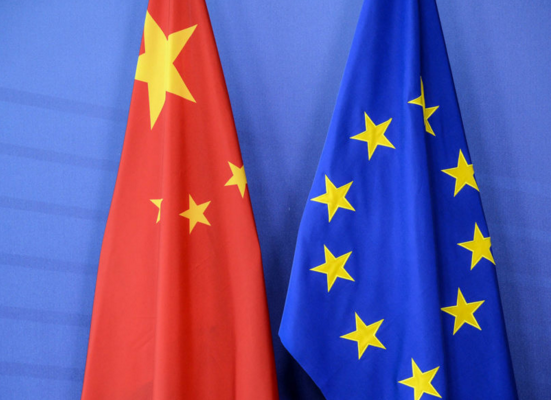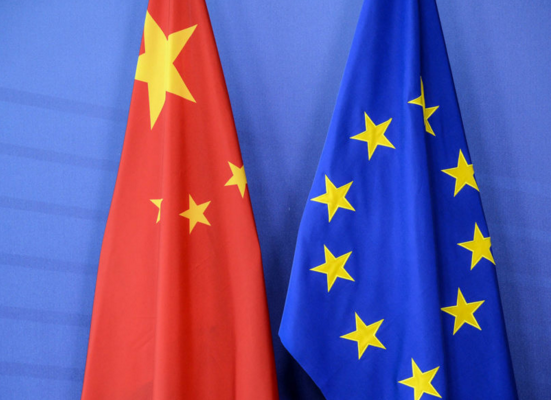
GENEVA, Sept. 21 (Xinhua) -- A number of European Union (EU) and Chinese experts and former government officials on Wednesday stressed that China and Europe should, through dialogue and cooperation, find a way to safeguard and improve the multilateral trade governance system represented by the World Trade Organization (WTO).
At a roundtable discussion sponsored jointly by two think tanks, the China Center for International Economic Exchanges (CCIEE), and Center for Trade and Economic Integration of the Geneva Graduate Institute of International and Development Studies (IHEID), they also said China and the EU should enhance their cooperation to answer the prevailing trade protectionism and unilateralism.
Zhou Xiaochuan, former Chinese central bank governor and adviser to CCIEE, said at the discussion that China always hopes to reduce trade friction, improve the global multilateral system, and reduce the uncertainty of the global economy in a complex and changeable environment.
China opposes unilateralism and trade protectionism, and hopes to promote investment, trade liberalization and facilitation as well as to establish a more open, balanced, inclusive and transparent, rules-based, non-discriminatory multilateral trading system, he stressed.
Zhu Guangyao, former Chinese vice finance minister, pointed out during the discussion that the spreading of unilateralism will not only significantly disrupt the global supply chains, threaten the multilateral mechanism which safeguards the collective interests of all countries, but also will stop cultural and people-to-people exchanges as well as harm world peace and development.
He told the audience that both China and Europe are staunch defenders of the multilateral trading system, and it is of strategic importance for both sides to strengthen policy communication and coordination.
Arancha Gonzalez, an expert in international trade issues with 20 years of experience and executive director of the International Trade Center, said that when new changes appear, the choice now is whether the multilateral trading system will be a buffer in trade confrontation or will be dragged down by trade conflicts.
She stressed that in today's multipolar world, multilateral trade governance needs to be improved, and for the WTO, the most urgent challenge is how to make the dispute settlement body resume its full function as soon as possible.
On the issue of WTO reform, Zhang Jianping, director of the Research Center for Regional Economic Cooperation of the Institute of International Trade and Economic Cooperation of China's Ministry of Commerce, said that the WTO still needs to adhere to the principles of non-discrimination, most-favored-nation treatment and transparency, openness and consensus.
In the future, he added, developed and developing countries should, on the basis of equality, respect and mutual negotiation, jointly formulate new multilateral trade rules and improve the multilateral trade governance system.
Wei Jianguo, CCIEE vice chairman and former Chinese vice commerce minister, also stressed that the multilateral trade governance system should always adhere to rule-based principles, ensure more transparency and fairness, and take the interests of developing countries into account.
Robert McDougall, a visiting scholar at IHEID, noted during the discussion that the WTO reform needs to be based on a four-point principle, namely, the flexibility of membership participation and rule-making, the balance of members, mutual trust and leadership.
The main topic of Wednesday's roundtable discussion was "Outlooks on China-EU-U.S. Economic Relations and Multilateral Trading System."




 A single purchase
A single purchase







